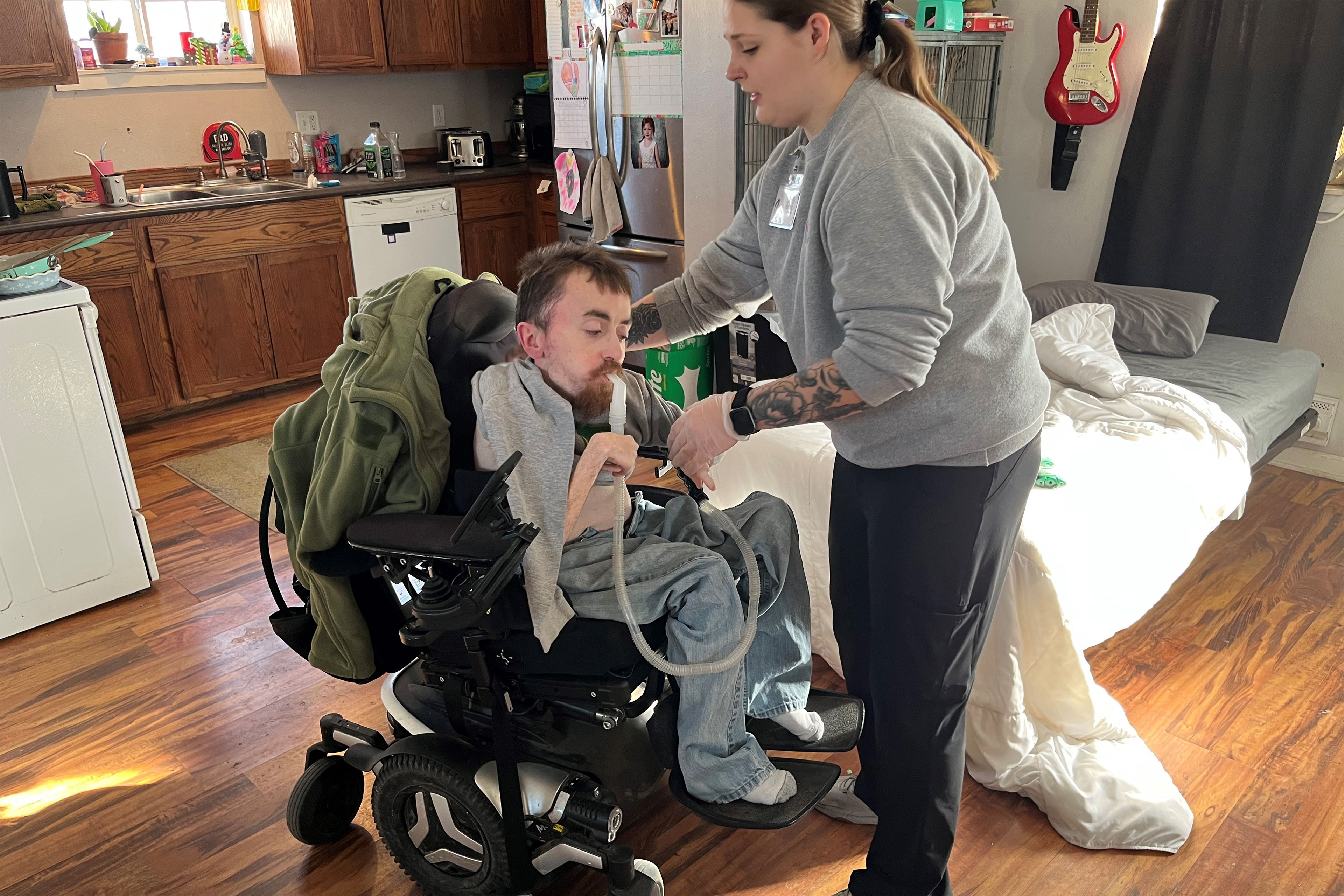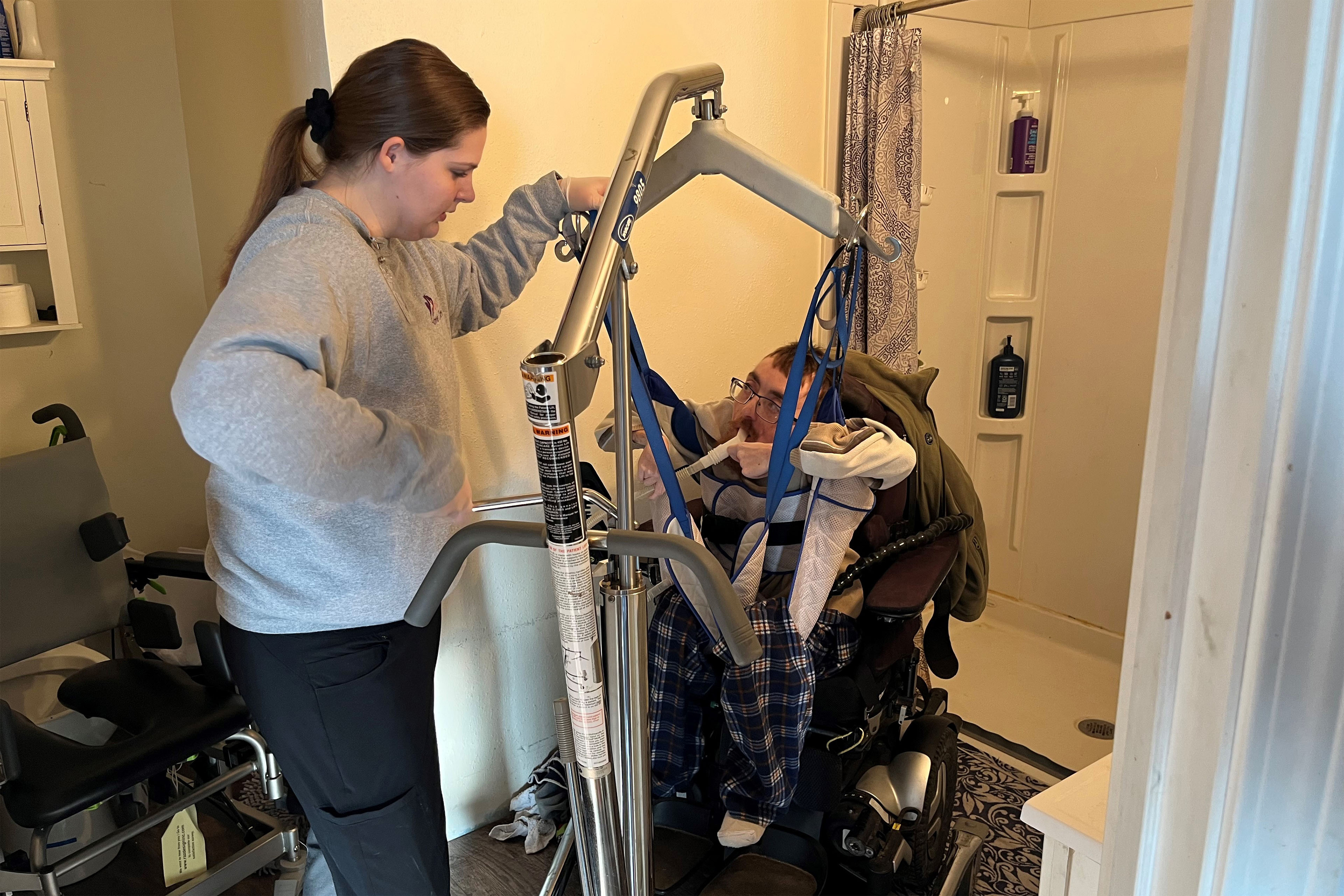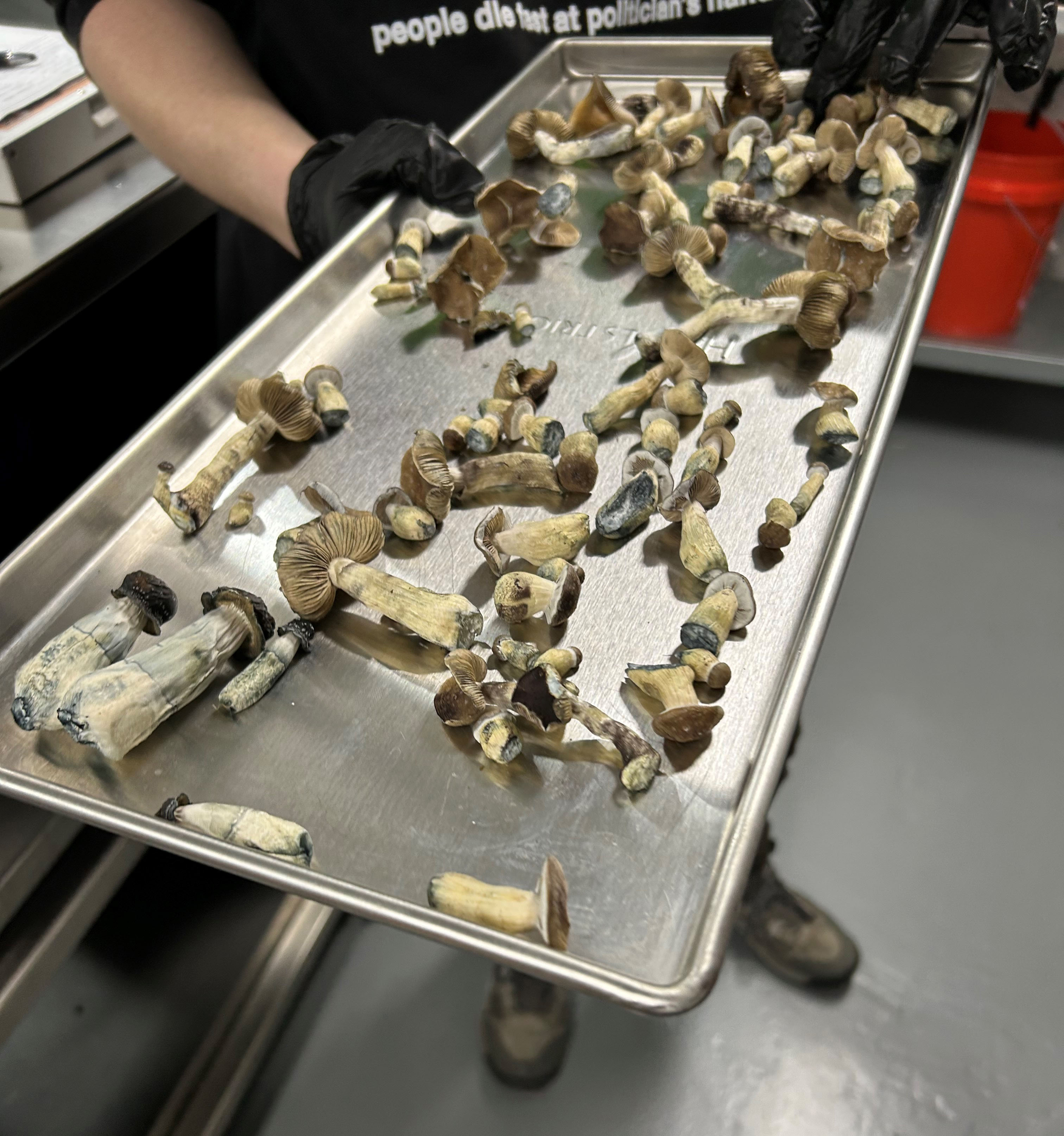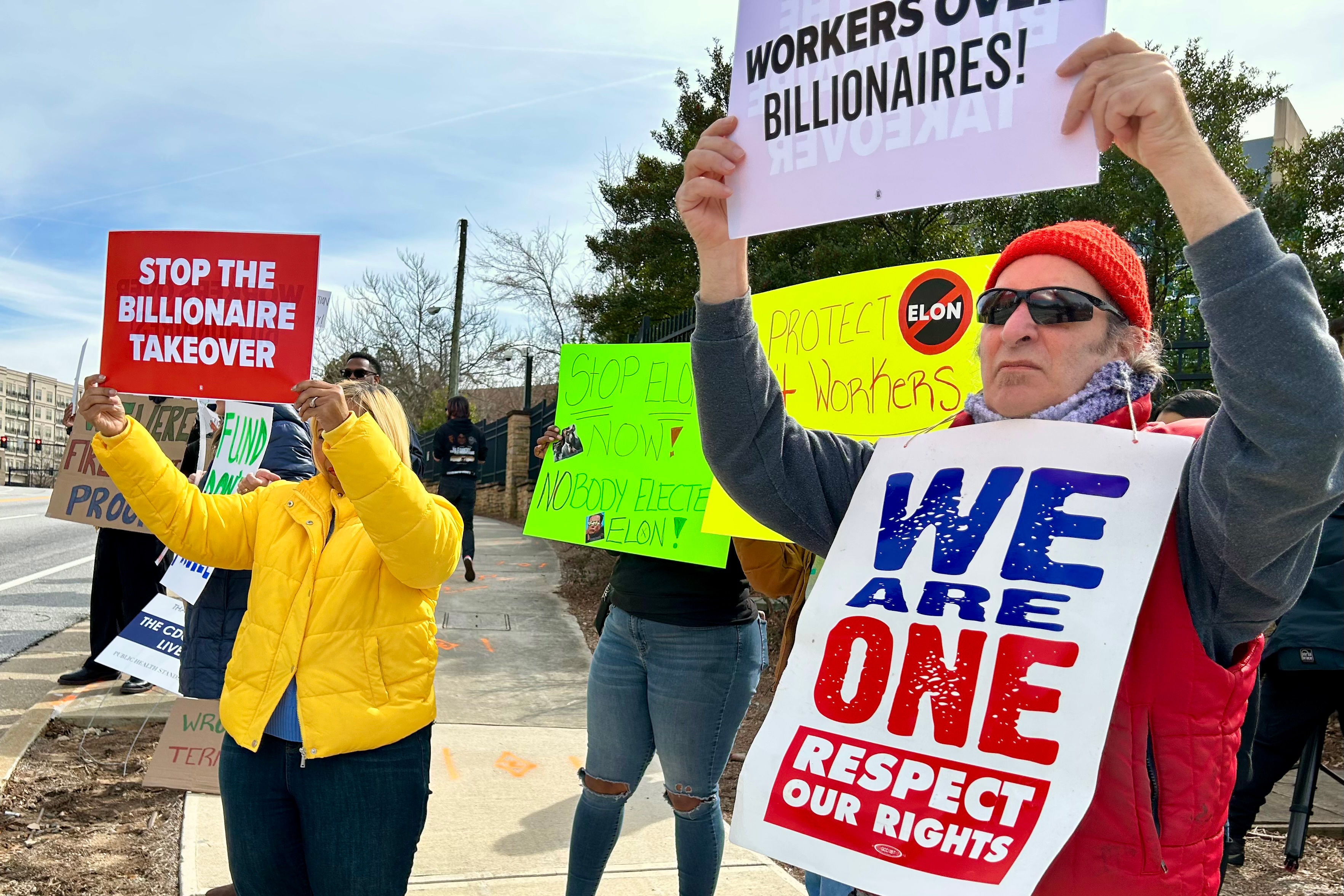“On Feb. 25, I voted yes on a budget resolution that protects Social Security, Medicare, and Medicaid while cutting some spending elsewhere.”

Rep. Nick LaLota (R-N.Y.), in a YouTube video posted March 4, 2025
On Feb. 25, Rep. Nick LaLota (R-N.Y.) voted in favor of a House budget resolution that calls for sharp cuts in spending across a vast array of government areas. Medicaid is among the programs that could be at risk — catapulting it to the center of the political debate.
President Donald Trump has insisted he won’t harm Medicaid, Medicare, and Social Security benefits, saying his administration is looking to root out fraud. But Democrats have pushed back, saying the sheer size of the proposed cuts will result in harm to the Medicaid program, its enrollees, and medical providers.
A KFF tracking poll has found widespread public support for Medicaid, which suggests efforts to cut the program could face political headwinds. KFF is a health information nonprofit that includes KFF Health News, the publisher of California Healthline.
LaLota, who represents part of Long Island, posted a video for his constituents explaining his position: “I voted yes on a budget resolution that protects Social Security, Medicare, and Medicaid while cutting some spending elsewhere.” Because much of his video focused on Medicaid, we did too. We found that his statement in this regard was layered with mischaracterizations and inaccuracies. Yet, in his video, LaLota advises his constituents to get their information straight from him, saying, “I’ll always be honest with you.”
We asked LaLota’s office for the information he used to back up his statement. The budget resolution makes no cuts to those programs, he wrote in a statement emailed by his communications aide Mary O’Hara. “Rather, it opens the door to protect Medicaid with common-sense solutions which ensure its availability for those Americans who qualify, including the removal of illegals from the rolls, work requirements for able-bodied adults, and the elimination of waste, fraud, and abuse.”
Let’s parse what the resolution does say and do, and the changes it could trigger for Medicaid.
Explaining the Basics
Budget resolutions are not law, but rather blueprints that guide lawmakers on budget-related legislation. The House-passed resolution — approved with 217 Republicans voting for it and 214 Democrats and one Republican against — is just one part of the budget process. The Senate also has a say, so changes are possible.
As written, the resolution seeks broad spending reductions across a range of areas overseen by various committees. It specifically asks the House Committee on Energy and Commerce to submit proposals “to reduce the deficit by not less than $880,000,000,000 [$880 billion] for the period of fiscal years 2025 through 2034.”
It does not say it would protect Medicaid. The word Medicaid is nowhere in the document. It does not prescribe any specific action on the program, such as instituting work requirements for recipients. Lawmakers separately draft legislation to make program adjustments to achieve the spending cut targets.
A little background: Medicaid is a state-federal program that provides medical coverage to lower-income residents, as well as payments to nursing homes for caring for seniors and disabled residents. Medicaid and the closely related Children’s Health Insurance Program cover more than 79 million people.
Medicare is the federal program that provides health insurance for some disabled people and most people over age 65. More than 68 million people are enrolled.
The resolution directs the committee to draft legislative language that would cut spending from areas under its jurisdiction, which include Medicaid and about half of Medicare.
Social Security is mainly overseen in the House by the Committee on Ways and Means. The panel also shares jurisdiction over Medicare with Energy and Commerce.
Policy experts and the Congressional Budget Office have said that, after removing Medicare from consideration, there’s not enough under the committee’s jurisdiction to cut $880 billion without substantially reducing Medicaid spending. (Medicare is generally considered a third rail because its beneficiaries are a powerful voting bloc.)
Indeed, of the $8.8 trillion in projected spending under the committee’s purview for the 10-year period, Medicaid accounts for $8.2 trillion, or 93%.
“Even if the committee eliminated all of non-Medicare and non-Medicaid spending, they would still have to cut Medicaid by well over $700 billion,” said Alice Burns, an associate director of KFF’s Program on Medicaid and the Uninsured.
Adding work requirements — most Medicaid recipients already have jobs — would not yield that level of savings and could increase state costs. Other cuts suggested by Republicans, including capping federal spending per enrollee, reducing federal matching dollars, and eliminating the use of provider taxes, which states use to pay for their share of Medicaid spending, could force states to cut spending or find new revenue sources.
“Cuts to Medicaid could mean eliminating coverage for children, parents, working adults or those who might need long term care; limiting benefits; or cutting payment rates for health plans or providers. These choices could come at a time when state revenue growth is slowing, and most states face requirements to pass balanced budgets,” according to an analysis by Robin Rudowitz, vice president of the KFF Program on Medicaid and the Uninsured.
The downstream effects if the House-passed budget resolution were enacted would be wide-ranging and significantly alter the safety net program, said Edwin Park, a research professor at the Center for Children and Families at Georgetown University.
He noted growing opposition to such large-scale Medicaid cuts from “beneficiaries and parents of children with disabilities, families with parents in nursing homes, and from health care providers.”
“Medicaid cuts are highly unpopular even among Trump voters,” he said.
Opposition to Medicaid cuts helped kill the 2017 attempt to repeal the Affordable Care Act during the first Trump administration, noted Joseph Antos, a senior fellow emeritus at the American Enterprise Institute.
Antos thinks the current spending cut target is unrealistic and will likely not survive the effort to merge the House budget blueprint with what the Senate wishes to do.
“Ultimately, the problem is you can’t take that much out of Medicaid,” Antos said.
LaLota’s focus on immigrants lacking legal status as a way to reduce federal spending on Medicaid is also misleading.
A number of states, including New York, offer coverage to children or adults regardless of immigration status, but they can use only state money to pay for such programs.
“States cannot use federal funding to cover undocumented immigrants,” Burns said. So removing them “won’t do anything for the deficit reduction targets.”
Our Ruling
LaLota said, “On Feb. 25, I voted yes on a budget resolution that protects Social Security, Medicare, and Medicaid while cutting some spending elsewhere.”
His statement is inaccurate and mischaracterizes laws and the language included in the budget resolution, creating a false impression of what his vote supported.
The 32-word sentence that directs the Energy and Commerce Committee to trim $880 billion over 10 years from programs it authorizes does not include any protections, guardrails, or specific directions for the panel to follow.
We rate this claim False.
Sources:
Rep. Nick LaLota, constituent video, March 4, 2025.
Clerk, United States House of Representatives, “Roll Call 50 | Bill Number H. Con. Res. 14,” Feb. 25, 2025.
Newsweek, “Donald Trump Issues Social Security, Medicaid Update,” March 10, 2025.
Rep. Hakeem Jeffries, press release, March 16, 2025.
KFF, February tracking poll, March 7, 2025.
Medicaid.gov, “October 2024 Medicaid & CHIP Enrollment Data Highlights,” accessed March 17, 2025.
Congressional Budget Office, letter to Reps. Brendan Boyle and Frank Pallone, March 5, 2025.
KFF Quick Takes, “As Governors Meet in D.C., Possible Federal Medicaid Cuts Loom as Big State Funding Issue,” Feb. 20, 2025.
KFF, “Key Facts on Health Coverage of Immigrants, Jan. 15, 2025.
Telephone interview with Joseph Antos, senior fellow emeritus, American Enterprise Institute, March 17, 2025.
Telephone interview with Edwin Park, research professor at the Center for Children and Families, Georgetown University, March 17, 2025.
Telephone interview with Alice Burns, associate director, Program on Medicaid and the Uninsured, KFF, March 17, 2025.







